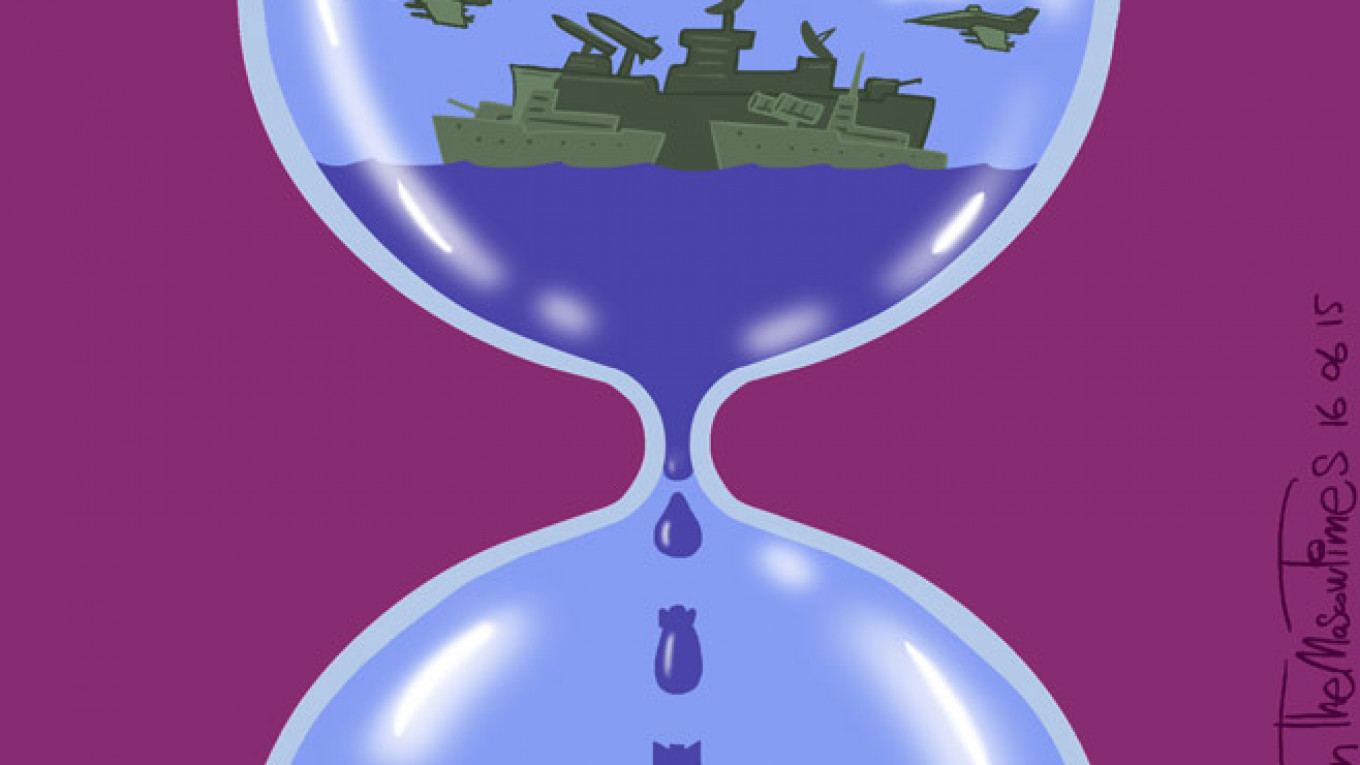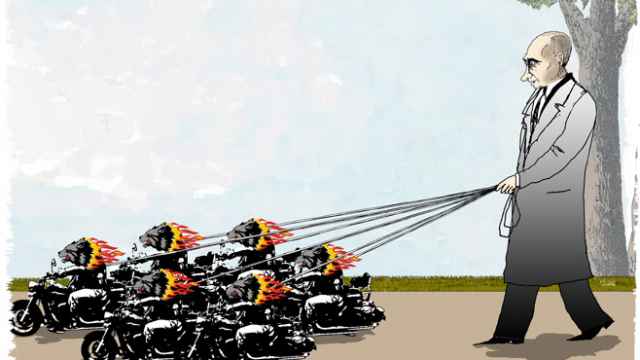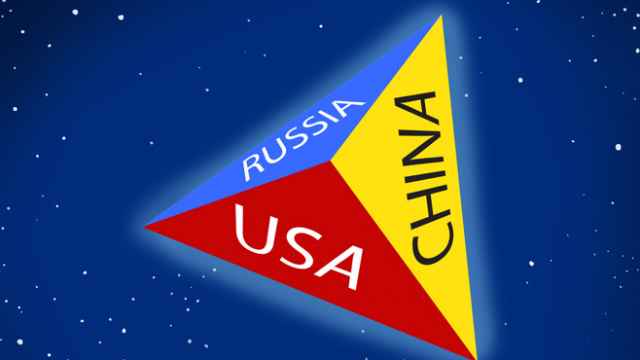Both Russia and the West continue to stage all kind of major military exercises and demonstrations, even while both accuse the other of provocation and aggressive intent. Are the drums of war beating? No, they're not — but we need to understand the real point behind these martial maneuvers, and the risks.
At present, the NATO-led BALTOPS (Baltic Operations) exercise is seeing ships and men from 17 countries in the Baltic Sea, including non-NATO nations such as Georgia and Finland, wargaming joint operations such as a beach assault. This month and the next, Exercise Saber Strike sees NATO forces training in the region, too, while the Noble Jump exercise tests the capabilities of the new Very High Readiness Joint Task Force.
Meanwhile, Russia is hardly resting on its laurels. In May it held nationwide air force exercises and snap maneuvers that mobilized some 12,000 troops in its Northern and Western commands, including the new Arctic Brigade in Kola. At the same time, it is running long-range bomber patrols along and sometimes into NATO airspace.
These operations are expensive. For example, April's Frisian Flag exercise involved a dozen U.S. F-15 fighter planes; each hour a single one of them is in the air is $42,000 in operating costs. They can also be politically provocative. The brinkmanship of Russian air patrols has raised the risk of mid-air collisions or civilian air traffic control problems. So why the current flurry?
First of all, they are training activities, as forces and command staffs rehearse potential operations, get used to working together and hone their skills. This is one reason why it is so important to watch your potential enemies, as they can provide invaluable hints as to their military intents, as well as their capacities.
But they know that, too, and so exercises are also often opportunities either for disinformation or communication. There is no reason to believe that Moscow for a moment genuinely believes it can or should start a war with NATO — an alliance that can outspend, outgun and outman Russia if need be. Nor is there the faintest chance that NATO is going to pick a fight with Moscow.
After all, just look at the nature of its involvement in Ukraine. NATO countries that have shown no reluctance to deploy combat troops elsewhere, even bring down governments, are being very cautious, confining themselves to training Ukrainians and sending non-lethal aid and warm words. The risk of direct confrontation with the Russian forces in the Donbass outweighs any commitment to Kiev.
So exercises and other symbolic military deployments become demonstrations of determination. This is not just in the hope of intimidating the other side but also to reassure one's allies. The regular NATO exercises in the Baltic states, for example, as well as the proposed pre-positioning of U.S. heavy hardware, are intended to warn Moscow that whatever it might get up to in Ukraine, incursions into Western countries will be taken seriously. But they are also meant to bolster Baltic morale and prevent people beginning to think that cutting a deal with Russia is the least-worst option.
This is especially important at a time when opinion polls are showing national sentiment in many NATO countries turning against supporting their allies. In Germany, in particular, a recent Pew poll found 29 percent not blaming Moscow for the violence in Ukraine and a majority against supporting NATO allies who face a Russian threat, 58 percent against 38 percent.
The trouble is that too many people start to take the exercises, and the overt and implicit rhetoric they reflect, at face value. Moscow plans to deploy Iskander-M missiles to Kaliningrad, which can deliver nuclear warheads — so what? Theoretically, that means they could hit Berlin: but can we really foresee a plausible scenario where either side would go nuclear and, in effect, doom the earth to Armageddon?
This is not a military contest, but one of will. The question becomes whether the heavy-handed rattling of sabers works as it is intended. In part, the German opinion results may well be a product of Moscow's sometimes-subtle, sometimes-crass information warfare.
But it probably also reflects not so much intimidation by the sight of Russian bombers in the Baltic but worries that bellicose allies (and yes, to a large extent — but not exclusively — that means the United States) might push NATO into a confrontation Germans do not want.
In other words, the very language and actions intended to warn off Moscow and reassure NATO members may actually be undermining the unity that is so essential to the alliance. At the same time, Russia's aggressive postures look as if they are pushing traditionally neutral Finland and Sweden closer to NATO than ever before. Both, incidentally, are taking part in BALTOPS.
So, is the paradox that while the leaderships of both NATO and Russia enjoy the macho posturing involved in the current "phony war," the posturing is actually far more counterproductive than they might think?
Mark Galeotti is professor of global affairs at New York University.
A Message from The Moscow Times:
Dear readers,
We are facing unprecedented challenges. Russia's Prosecutor General's Office has designated The Moscow Times as an "undesirable" organization, criminalizing our work and putting our staff at risk of prosecution. This follows our earlier unjust labeling as a "foreign agent."
These actions are direct attempts to silence independent journalism in Russia. The authorities claim our work "discredits the decisions of the Russian leadership." We see things differently: we strive to provide accurate, unbiased reporting on Russia.
We, the journalists of The Moscow Times, refuse to be silenced. But to continue our work, we need your help.
Your support, no matter how small, makes a world of difference. If you can, please support us monthly starting from just $2. It's quick to set up, and every contribution makes a significant impact.
By supporting The Moscow Times, you're defending open, independent journalism in the face of repression. Thank you for standing with us.
Remind me later.








